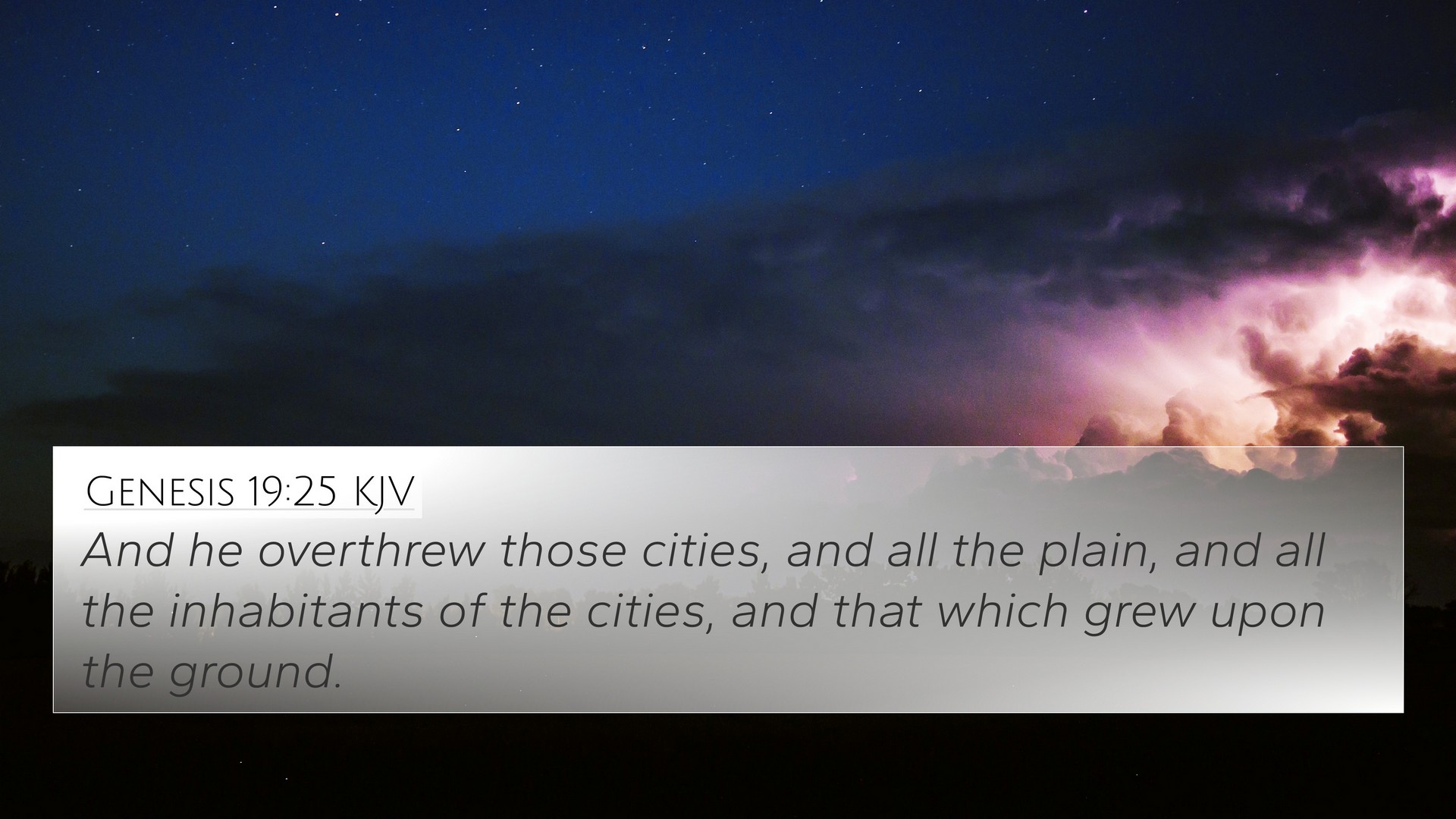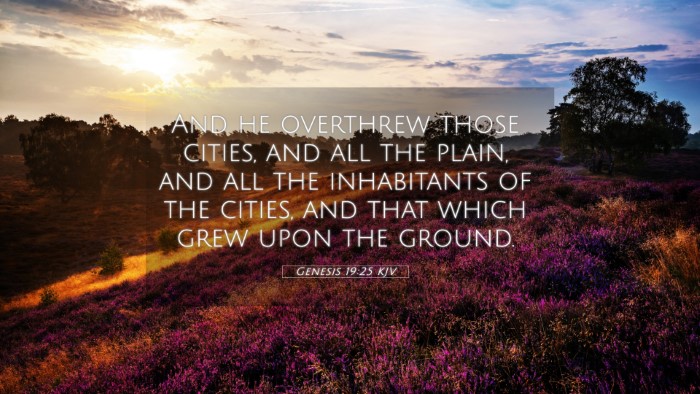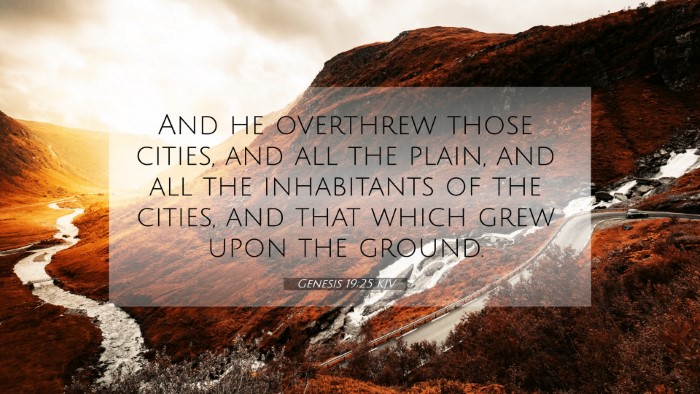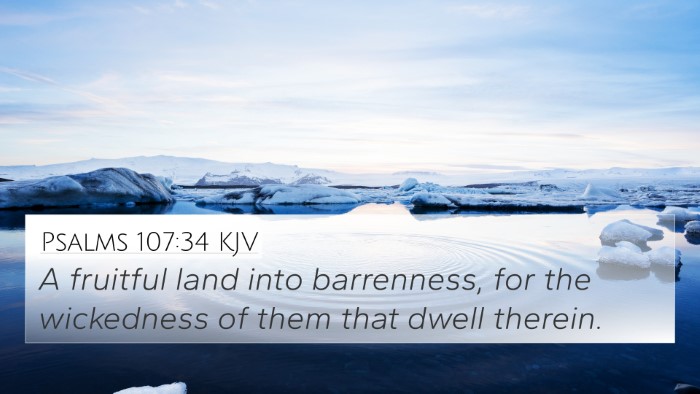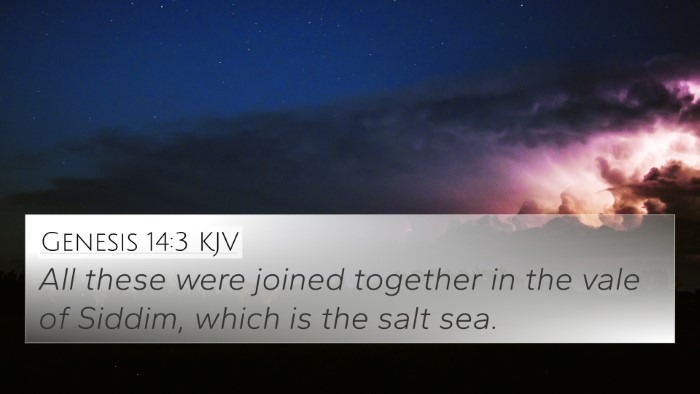Understanding Genesis 19:25
Genesis 19:25 states, "And He overthrew those cities, and all the plain, and all the inhabitants of the cities, and that which grew upon the ground." This verse depicts the divine judgment upon Sodom and Gomorrah, which serves as a significant event in biblical history.
Context and Background
To grasp the full meaning of Genesis 19:25, it's crucial to consider its surrounding context within the narrative of Lot and the destruction of Sodom. The chapter reveals God’s wrath against the sins of the cities, emphasizing justice and moral accountability.
Commentary Insights
- Matthew Henry's Commentary: Henry emphasizes the severity of God's judgment, which extended beyond mere individuals to entire cities and their agricultural products, symbolizing total devastation. He points out that this destruction serves as a warning against immorality.
- Albert Barnes' Notes: Barnes focuses on the completeness of the destruction, highlighting that both urban and rural areas were not spared. He interprets this as an act meant to demonstrate God’s power and righteousness against iniquity.
- Adam Clarke's Commentary: Clarke discusses the analogy of fire and brimstone typically associated with this event. He suggests that such divine retribution aligns with the biblical principle of sin bringing forth judgment, and this serves as a historical example of divine justice.
Thematic Connections
The destruction of Sodom and Gomorrah in Genesis 19:25 can be linked to various themes throughout the Bible, particularly focusing on judgment, mercy, and holiness. Below are some thematic Bible verse connections:
- Romans 1:18-32: This passage discusses the wrath of God against unrighteousness and parallels the moral degradation observed in Sodom.
- 2 Peter 2:6: Peter references the destruction of Sodom as an example of judgment for ungodly behavior, reinforcing the consequences of sin.
- Luke 17:28-30: Jesus mentions the days of Lot to illustrate the suddenness of judgment, making a connection to His second coming.
- Deuteronomy 29:23: This verse describes the land of Sodom and Gomorrah as a symbol of divine judgment, reiterating the importance of obedience to God.
- Revelation 21:8: The final judgment is expressed here as a warning against the fate of the unrepentant, akin to the fate of Sodom.
- Jeremiah 49:18: God's judgment on Edom is mentioned alongside Sodom's destruction, showcasing a broader pattern of divine retribution in Scripture.
- Ezekiel 16:49-50: Provides insight into the specific sins of Sodom, further illuminating the reasons behind God's judgment as seen in Genesis 19:25.
Applying the Lesson
Genesis 19:25 serves as a powerful reminder of the seriousness of sin and the inevitable consequences of turning away from God. For contemporary readers, this verse calls for self-examination of moral conduct and highlights the importance of living righteously in anticipation of divine judgment.
Tools for Cross-Referencing
For those seeking to delve deeper into comparative Bible verse analysis, various tools can aid in cross-referencing:
- Bible Concordance: A helpful resource for finding specific verses and related themes.
- Bible Cross-Reference Guide: This guide facilitates finding interconnected verses across the biblical text.
- Cross-Reference Bible Study: Engaging in this method enhances understanding of thematic ties between scriptures.
- Bible Reference Resources: Comprehensive materials that help in linking Bible verses for in-depth study.
Conclusion
In summary, Genesis 19:25 encapsulates a critical moment of divine judgment, reminding us of the eventual consequences of sin. The verse is resonant with cross-references that enhance the understanding of biblical themes such as judgment, righteousness, and God’s sovereignty. Utilizing tools for bible cross-referencing can enrich one's study, leading to a deeper comprehension of the interconnected nature of biblical texts.
